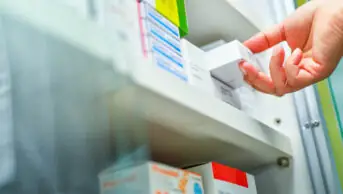
Shutterstock.com
The government and pharmaceutical industry representatives have been unable to reach an agreement on NHS branded medicines pricing, the Association of British Pharmaceutical Industry (APBI) has announced.
The current five-year agreement under the ‘Voluntary scheme for branded medicines pricing, access and growth’ (VPAG) began in 2024, and a planned mid-scheme review was brought forward in April 2025.
Under the scheme, pharmaceutical companies must pay a levy to the government on the sales of branded medicines to the NHS, which doubled in July 2025, from 15.5% to 31.3%.
According to an APBI report, published in March 2025, the levy exceeds medicines payment rates in other countries, such as 9% in Ireland, 7.9% in Belgium, 7% in Germany and 5.7% in France.
The APBI said it wanted to see a rapid return to “single-digit, internationally competitive payment rates on medicines sales to the NHS”.
Commenting on the announcement, Richard Torbett, chief executive of the ABPI, said: “The NHS’s demand for innovative medicines has continued to grow in line with health demands. Yet the UK’s willingness to invest in new treatments has continued to fall, driven by uncompetitive and punitive rebates on company revenues.”
The cost-effectiveness thresholds used by the National Institute for Health and Care Excellence (NICE) for medicines “have not fundamentally changed for nearly a quarter of a century”, he added.
Generally, NICE recommends a medicine to be purchased by the NHS if it offers an incremental cost-effectiveness ratio of £20,000–30,000 per quality-adjusted life year (QALY).
However, the APBI suggested that had this been adjusted for inflation over the past two decades, it would now be more than £50,000 per QALY.
The APBI said this could impact what medicines are available to patients in the UK, adding that the number of companies terminating their NICE appraisal had doubled over the past five years.
“While this review has concluded without reaching agreement, the issues it was set up to resolve remain unaddressed and continue to demand urgent action,” Torbett added.
He warned: “The UK will not realise the high ambition it has set for its life sciences sector until it addresses the core issue holding the UK back. For too long, the UK has sought to be the place where innovation happens, but not the place where it is used. Without change, the UK will continue to fall down international league tables for research, investment and patient access to medicines.”
A spokesperson for the government said it had put forward an “ambitious, generous set of proposals for reforms that would increase spending on medicines, to support access to innovative treatments for patients in the NHS and incentivise further industry investment, whilst balancing other spending pressures in a tough fiscal environment”.
“It is regrettable that following weeks of delay, ABPI members are unwilling to take our proposals to a board vote. We have therefore determined that the interests of patients and the NHS are best served by concluding the review and continuing with the existing VPAG scheme unamended, while continuing to support the UK’s world-leading life sciences sector through investment, innovation and reform as set out in our life sciences sector plan and ten-year health plan,” the spokesperson added.


